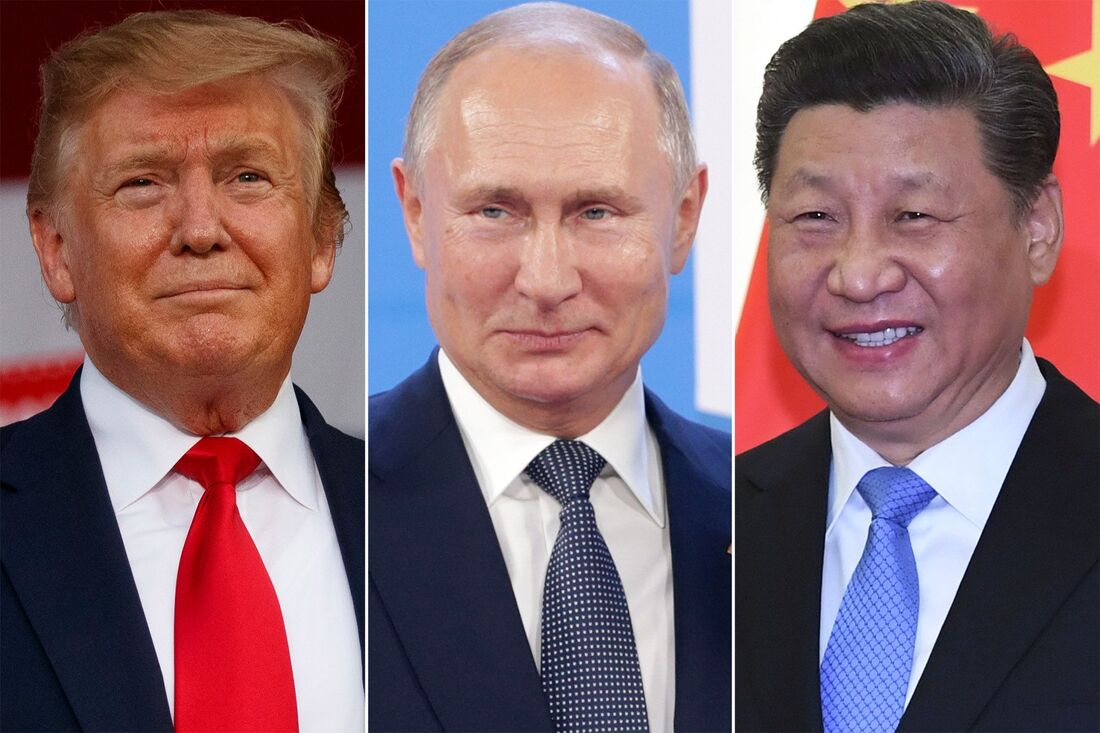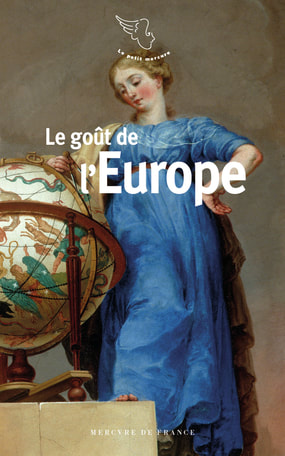|
The European Union (EU) is frequently accused of constraining and weakening national democracies. On the other hand, history teaches us that democracies are often far more likely to suffer as a result of being too small and divided among themselves than as a result of being united. Ancient Greece was the birthplace of the democratic ideal—that is, ordinary citizens’ direct participation in political decision making—but it was also the scene of the gradual subjugation of democracy by empires. According to Aristotle, a viable constitution could not be established beyond the limits of a city small enough for all citizens to know each other. From this point of view, it is rather ironic that the philosopher was the tutor of Alexander the Great, who, after having subdued almost all Greek cities, formed one of the largest empires in history. When referring to the model of ancient Athens, today’s democrats usually have in mind the mighty city of the 5th century B.C. Few remember that Athenian democracy ended up depending on the goodwill of the kings and empires that surrounded it. After Alexander’s death in 323 B.C., his empire was divided among his generals, who then created royal dynasties in Macedonia, Egypt and Asia. Faced with these new superpowers, the Greek cities were no more than pawns. The fate of Athens speaks for itself. In 317 B.C., the city had passed into the sphere of influence of Cassander, a Macedonian general. In 307 B.C., a rival of Cassander, the Macedonian leader Demetrius Poliorcetes, liberated Athens and restored democracy to the city. He also offered to supply the city with wheat and wood. In response, the Athenians felt obliged to bestow the titles of ‘king’ and ‘saviour-god’ upon Demetrius and to raise an altar in his honour. They went so far as to modify their political organisation to create two new tribes, which bore the names of Demetrius and his father Antigonus. This is the point to which the lighthouse of Western democracy was reduced. Athens’ dependence was not only military; it was also economic. During the 3rd century B.C., the Athenians were led to beg for money and cereals from Lysimachus, the king of Macedonia, and from the rulers of Egypt, Ptolemy I and Ptolemy II. Yesterday’s Greek cities are today’s European nations. The men leading the powerful empires around us are no longer called Demetrius or Ptolemy, but Trump, Putin or Xi. And like the Macedonian kings who preceded them, these modern conquerors do not necessarily seek to subjugate Europeans by force, but to place them in a position of dependence. When Trump’s America openly supports Brexit and regularly threatens Europeans with trade wars, when Putin’s Russia plays on Europe’s energy dependence and supports extreme right-wing parties in order to further weaken and divide Europeans, and when Xi’s China seeks to extend its economic grip on Europe through the investments of its Belt and Road Initiative and its ‘17 + 1’ partnership with Central and Eastern European countries, then—like ancient Greek cities—European democracies become the prey, the trophies of a new power competition. In a Europe severely hit by COVID-19, modern empires have returned to a strategy typical of Macedonian monarchs: euergetism, i.e., making donations to increase their political influence. According to historian Paul Veyne, the gifts offered by kings to cities in ancient Greece were often ‘symbols of dependence’: ‘The people who accept them do not sell themselves at that price, but their acceptance has the meaning of a promise of obedience’. In March 2020, China and Russia sent medical equipment and experts to Italy, accompanied by disinformation campaigns that stressed the inability of European democracies to cope with the crisis. EU High Representative Josep Borrell warned that this ‘politics of generosity’ was part of a ‘struggle for influence’. Most of the equipment provided by Russia has since proved useless. However, deploying Russian military doctors on the territory of a large European state and having the media broadcast images of Italians carrying Russian flags while yelling ‘Grazie a Putin’ is in itself a brilliant victory for the Kremlin. China, for its part, clearly sees Italy as its bridgehead in Europe, having already succeeded in getting the country to join its Belt and Road Initiative in 2019. Chinese diplomats have also approached German officials, asking them to publicly praise China’s response to the COVID-19 crisis. Will European democracies suffer the same fate as Athens? In September 2018, Polish President Andrzej Duda, seeking to secure increased American military presence in his country, suggested that this could take the form of a ‘Fort Trump’ in Poland, hoping to flatter the ego of the US President. Will we soon see some Europeans honour Xi Jinping with the title of ‘saviour-god’? Will others go so far as to raise altars dedicated to Vladimir Putin? One of the great lessons of ancient Greece is that there is a remedy for the gradual subjection of democracies to empires. There is indeed a power that rose up against the Macedonian monarchs and against Roman imperialism, and embodied ‘the last hope of Greece, the last hope of ancient liberty’. This power was a union of cities, known as the Achaean League. Bringing together cities rebelling against Macedonian occupation and the tyrants imposed by kings, this league formed a genuine democratic federation. The member cities retained their own constitutions and autonomy in internal affairs, but foreign and military policies were the responsibility of a federal citizens’ assembly, a council of city delegates, and an elected federal strategos. Polybius, who had been an officer in the armies of the League, wrote the following about the long-time strategos of the Achaeans, Aratus of Sicyon: All of his schemes and action were directed to one object, the expulsion of the Macedonians from the Peloponnese, the suppression of the tyrants, and the re-establishment on a sure basis of the ancient freedom of every state. The Achaean League eventually became a great power, unifying almost the entire Peloponnese region. After a long struggle against Macedonian rule, the League was the last Greek state to resist Rome’s imperialism. The Romans finally supported the secession of Sparta and, after the destruction of Corinth in 146 B.C., dissolved the League and reduced Greece to one of their provinces. Despite this tragic end, many authors have seen the Achaean model as proof that small democracies can stand up to great empires, provided they unite properly. Plutarch wrote: Just as in running waters, after a few small particles have begun to take a fixed position, others presently are swept against the first, adhere and cling to them, and thus form a fixed and solid mass by mutual support, so the Achaeans, at a time when Greece was weak and easily dissolved and drifting along by individual cities, first united themselves together, and then, by receiving into their number some of the cities round about which they had aided and assisted in shaking off their tyrants, and by uniting others with themselves in a harmonious civil polity, they purposed to form the Peloponnesus into a single political body and one power. More recently, in Enlightenment Europe, Montesquieu referred to ancient Greece and its leagues of cities to demonstrate that the best way for republics to ensure their survival is to form federations, that is to say, ‘a kind of constitution that has all the internal advantages of a republican, together with the external force of a monarchical, government’. Having long been focused exclusively on economic issues and the management of the single market, the EU today sees itself as a geopolitical actor. With the European Defence Fund, the European Commission now seeks to promote European ‘strategic autonomy’; in the framework of its new policy towards China, it also seeks to develop European ‘economic sovereignty’, in particular through foreign investment screening; in the digital sector, it also aims to defend European ‘technological sovereignty’ against American and Chinese giant companies. This fight is still in its infancy, but as with the Greek cities of 2,200 years ago, unification is the only hope for European democracies to overcome their impotence and resist the domination of empires. European democrats should meditate on the fate of Athens: What is the point of preserving a perfect democracy in principle if your state’s decisions actually depend on the goodwill of an external ruler? For their part, pro-Europeans would do well to take inspiration from the Achaean model. The Achaean League was so popular in ancient Greece because—rather than diluting the city-level democratic processes—, it fully transposed them to the federal level by having the major decisions on war and alliance taken by a citizens’ assembly. Wondering why so many people considered it an honour to be members of the League, Polybius concluded: The cause here, I believe to be more or less the following. One could not find a political system and principle so favourable to equality and freedom of speech, in a word so sincerely democratic, as that of the Achaean League. No democracy without union; no union without democracy. Comments are closed.
|
My name is Pierre Haroche and I am a specialist in European integration and European security.
In this blog I present my thoughts on EU democracy, defence and identity. If you are interested in my proposals, do not hesitate to get in touch! My book (in French) is a commented anthology of literary texts on the idea of Europe, since Antiquity.
Writers, before politicians and civil servants, have made Europe by invoking it. They made it through their vision, their sensitivity, their taste. Europe is an entity that cannot be reduced to the sum of its parts, but encompasses them. From ancient myths to contemporary issues, a journey through an uncertain continent in the company of Hesiod, Ovid, Victor Hugo, Fyodor Dostoevsky, Thomas Mann, Stefan Zweig, Henry James, Albert Cohen, Aurélien Bellanger, Orhan Pamuk, Laurent Gaudé and many others. |
Proudly powered by Weebly




